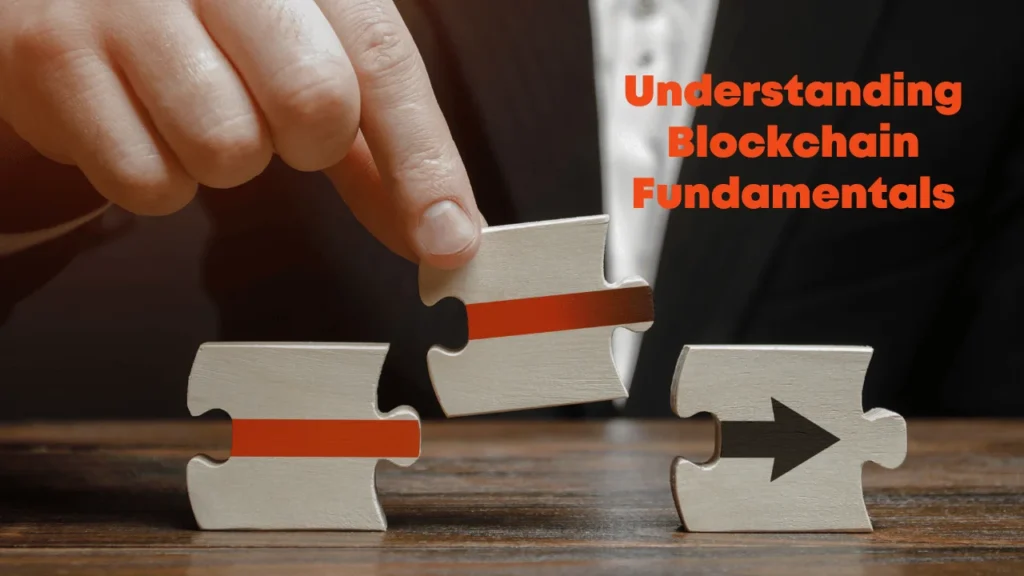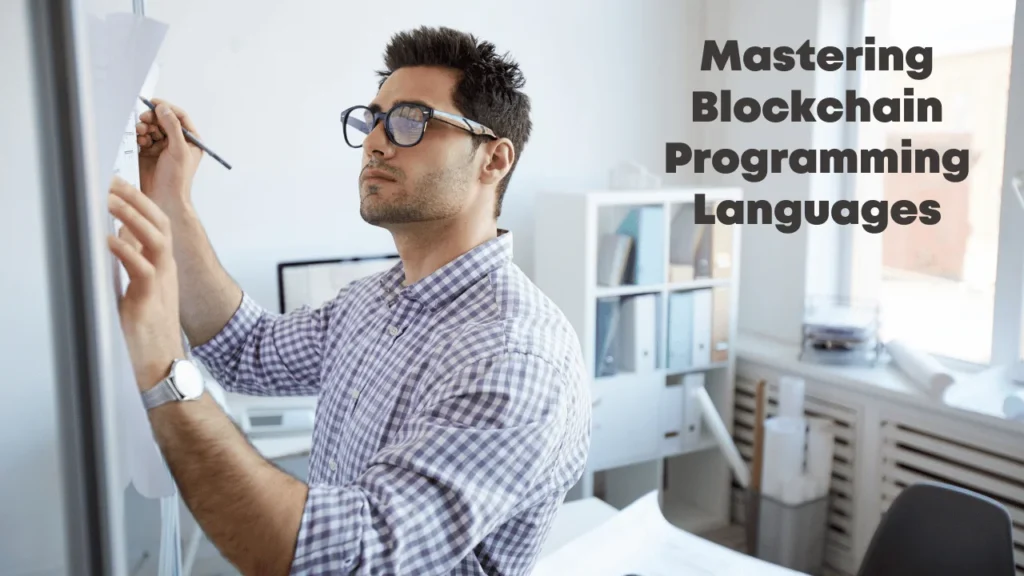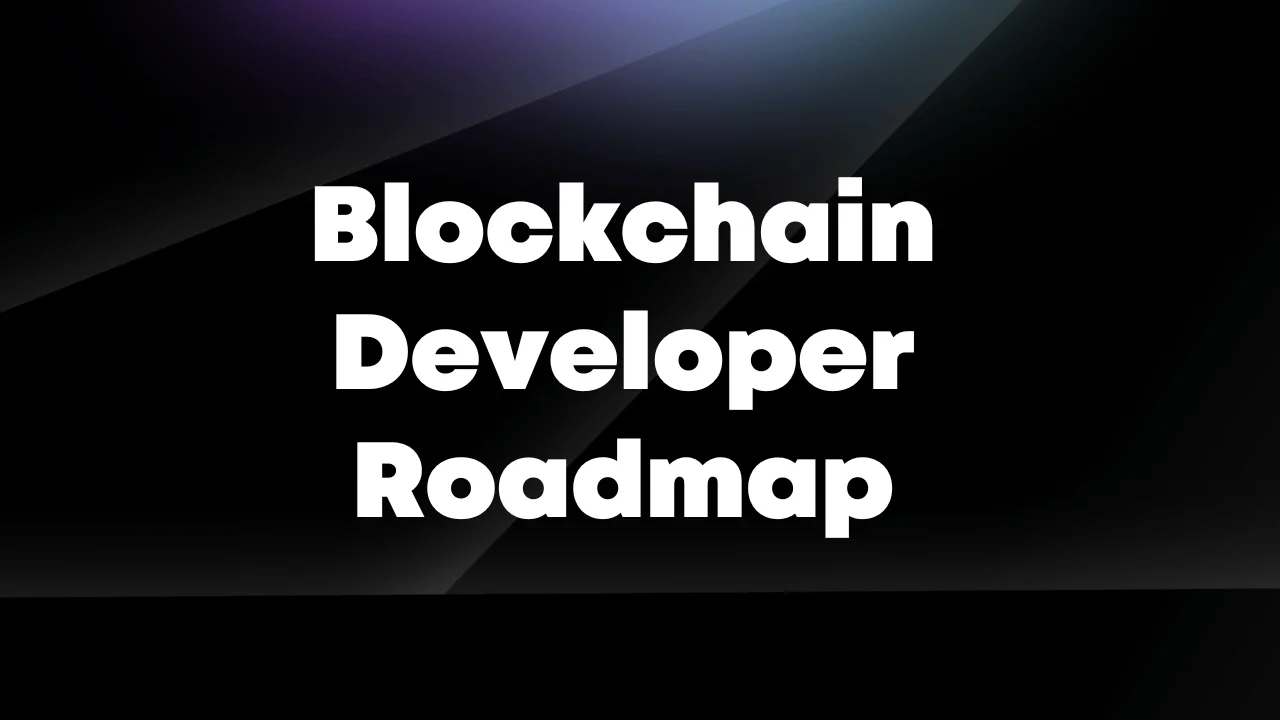With the advent of blockchain technology, a new era of decentralized solutions has begun in many different industries, ushering in the digital age of rapid technological evolution. If you want to be a part of creating systems that are safe, transparent, and efficient, becoming a blockchain developer is a great way to do it. This all-inclusive roadmap, commonly referred to as the “Blockchain Developer Roadmap,” is made to help aspiring blockchain developers navigate the complexities of the blockchain world and gain the expertise, understanding, and experience they need to succeed in this dynamic industry.
Building blockchains is more than just a job; it’s an adventure into the technological future. This opportunity is for individuals who have a strong desire to innovate, tackle challenging problems, and make a positive impact on the safety and effectiveness of online transactions and interactions. This roadmap provides a structured path to becoming a blockchain professional, whether you are an experienced developer seeking to transition into blockchain, a recent graduate, or someone who is passionate about technology and its social impact.
Understanding Blockchain Fundamentals

Having a solid grasp of blockchain technology’s fundamental principles is essential before delving into the intricacies of blockchain development. Every aspiring blockchain developer must grasp these fundamental concepts, which are explored in this section.
Blockchain Architecture
Blockchain can be described as a distributed ledger that records transactions across multiple computers in a decentralized manner. This makes sure that every record is safe, clear, and unchangeable. It is critical for developers to grasp the fundamentals of blockchain, including how its peer-to-peer network accomplishes decentralization and how this architecture differs from conventional centralized systems.
Consensus Mechanisms
Protocols known as consensus mechanisms guarantee that every node in the blockchain network agrees that a transaction is legitimate. Learning the ins and outs of different consensus algorithms is crucial. These include PoW, PoS, and DPoS, among others. Different mechanisms impact blockchain networks’ scalability, security, and efficiency in different ways.
Blockchain Security Principles
To ensure blockchain security, one must take precautions to prevent attacks and unauthorized access to the network. To guarantee the authenticity and integrity of transaction data, blockchain employs cryptographic methods like digital signatures and hashing. Additionally, developers need to know what security flaws exist and how to fix them.
Practical Blockchain Experience
If you want to be a good blockchain developer, you need to get some experience doing it. Practical projects, open-source platform contributions, and hackathon participation are all part of this. Participating in such activities will help you develop your abilities and educate you on the practical uses of blockchain technology.
Mastering Blockchain Programming Languages

When creating a blockchain, the capacity to code is critical. The languages that play a crucial role in developing DApps and smart contracts are covered in this section.
Solidity for Smart Contracts
If you want to build smart contracts for Ethereum or any other blockchain platform, Solidity is the language to use. Acquiring knowledge With Solidity, programmers can build contracts for many different uses, including supply chain management and financial services. Building trustworthy smart contracts requires familiarity with its syntax, recommended practices, and security patterns.
Python in Blockchain Development
A lot of blockchain developers prefer Python because of how easy it is to learn and how versatile it is. Data analysis, decentralized application development, and blockchain protocol creation are all possible uses. You can greatly improve your development skills by becoming familiar with Python frameworks and libraries that are relevant to blockchain.
JavaScript for DApps
Building user interfaces for decentralized applications (DApps) relies heavily on JavaScript, as it is the foundation of web development. The development of interactive, user-friendly apps that connect to blockchain backends is made possible by it. One must be proficient in JavaScript and other frameworks such as React or Angular in order to develop full-stack blockchain applications.
Engaging with the Blockchain Community

To advance in one’s career and learn about new opportunities as they arise, networking within the blockchain community is essential. In this section, we will discuss why prospective blockchain developers should actively participate in online communities.
Networking in Blockchain Community
Mentorship, collaboration, and even employment opportunities can be yours for the taking when you become actively involved in blockchain communities. Sharing knowledge and building relationships with other developers, experts, and enthusiasts through online communities, meetups, and forums is a great way to advance your career.
Online communities dedicated to blockchain technology, as well as general online discussion boards like Reddit and Stack Exchange, provide a wealth of knowledge for anyone interested in blockchain technology and its development. Networking and keeping up with blockchain industry influencers and thought leaders is also made easier with social media platforms such as LinkedIn and Twitter.
Attending Blockchain Industry Conferences
There is no better place to meet other industry experts, gain insight from recognized thought leaders, and learn about cutting-edge blockchain developments than at a conference or seminar. If you want to learn more about the subject and meet people with fresh ideas, then you should definitely consider attending one of these events.
Blockchain Career Development
To be successful as a blockchain developer, you need more than just technical know-how. Strategies for blockchain developers to advance in their careers are discussed in this section.
Building a Blockchain Portfolio
If you want to impress prospective employers with your blockchain expertise, you need a portfolio that highlights your work on various projects. Make sure to include a range of projects that showcase your proficiency in blockchain protocols, smart contracts, and decentralized applications. When applying for jobs in the blockchain industry, a well-curated portfolio might be the deciding factor.
Blockchain Job Market Trends
It is essential for career planning to stay informed about the latest trends in the blockchain job market. By familiarizing yourself with the industries that are embracing blockchain technology, the types of jobs that are available, and the demand for blockchain skills, you can better tailor your educational journey and professional aspirations to meet industry demands.
Continuous Learning in Blockchain
Technological advancements in the blockchain field happen at a rapid pace. In order to stay up with the latest innovations, platforms, tools, and best practices, it is essential to commit to continuous learning. To keep up with the ever-changing and fiercely competitive industry, consider taking advantage of online courses, workshops, and certifications.
Blockchain Development Tools and Platforms
Learn the ins and outs of the platforms and tools that help with blockchain application development, testing, and deployment if you want to be a good blockchain developer. Everything you need to know about the main platforms and tools is covered in this section.
Tools for Blockchain Development
A number of tools are available to developers to aid in the creation of smart contracts, testing, deployment, and interaction with blockchain networks. Crucial tools include Integrated Development Environments (IDEs), such as Truffle Suite for Ethereum network deployment and Remix for Solidity. Git and similar version control systems are also crucial for team-based software development.
Platforms for Decentralized Applications
Developers must carefully consider the features and benefits of each blockchain before settling on a platform to build decentralized applications (DApps). The widespread use of smart contracts has made Ethereum the go-to platform for decentralized application development. You can find different platforms with different consensus mechanisms, costs, and speeds, such as Polkadot, Cardano, and Binance Smart Chain.
Blockchain Testing Frameworks
Smart contracts and decentralized applications (DApps) must pass rigorous testing to guarantee they are secure and function as expected. Mocha and Chai provide a versatile and user-friendly testing suite for JavaScript applications, while Ganache provides a personal blockchain for testing DApp applications directly on your machine.
Blockchain Industry Applications
Because it offers solutions that are secure, transparent, and immutable, blockchain technology could transform many different industries. There will be a plethora of job opportunities and a surge in innovation once people grasp the breadth of blockchain’s uses.
Blockchain in Finance
Blockchain technology was initially adopted by the financial sector, with decentralized finance (DeFi) and cryptocurrencies serving as the pioneers. Payments, remittances, and asset management have all been revolutionized by blockchain technology due to its capacity to enable instant, secure, and transparent transactions.
Use of Blockchain Technology in SCM
Supply chain management can benefit greatly from blockchain technology’s innovative solutions, which increase efficiency, transparency, and traceability. An immutable ledger records every transaction in blockchain, allowing stakeholders to verify the origin and authenticity of products. This improves supply chain logistics and reduces fraud.
Blockchain Solutions in Healthcare
Blockchain technology has several potential applications in healthcare, including the management of pharmaceutical supply chains, the assurance of data integrity in clinical trials, and the secure and efficient sharing of medical records. Healthcare providers’ operational efficiency is enhanced, and patient care is improved as a result.
Governance through Blockchain Technology
Blockchain technology has the ability to revolutionize current models of governance by facilitating decentralized and transparent decision-making. Voting systems built on the blockchain can increase election security and transparency, while smart contracts can automate administrative duties.
Blockchain Developer Skills
A blend of technical know-how, hands-on experience, and a thirst for knowledge is necessary to make it as a blockchain developer. In order to succeed in the blockchain field, it is necessary to have the abilities and knowledge described in this section.
Skills for Blockchain Professionals
The ability to code in Python, Solidity, and JavaScript is essential. Knowledge of blockchain design, consensus processes, and security principles is also essential. In order to tackle difficult problems and come up with new ideas in the blockchain industry, developers should have good analytical abilities.
Mastering Blockchain Development
Being an expert blockchain developer requires knowledge of the technology’s technical aspects as well as its social and ethical consequences. It is the responsibility of developers to design solutions that meet these criteria while also being fair and open to scrutiny.
Blockchain Innovation and Opportunities
New consensus algorithms and decentralized applications (DApps) that solve practical issues are just two examples of the many areas where blockchain technology has room to grow and innovate. By maintaining an inquisitive mindset, being receptive to fresh perspectives, and actively engaging with the blockchain community, monumental strides can be made in the industry.
Must Check: What is Nonce in Blockchain? Unlocking the Secrets
Frequently Asked Questions
What is the best programming language to start with for blockchain development?
When it comes to building smart contracts, Solidity is the way to go. As for blockchain apps and DApps, Python and JavaScript are two very flexible languages.
How can I gain practical blockchain development experience?
Gaining practical experience can be achieved by taking part in hackathons, making contributions to open-source blockchain projects, and creating your own decentralized applications (DApps).
What are the key security concerns in blockchain development?
Developers must address significant security concerns related to smart contracts by addressing vulnerabilities like reentrancy attacks and front-running.
Can blockchain technology be applied outside of finance?
Blockchain technology isn’t just useful in the financial sector; it also has healthcare, governance, and supply chain management uses.
How do I keep up with the latest developments in blockchain technology?
The best ways to keep up with the latest developments in the blockchain industry are to follow relevant news outlets, join relevant community forums, and go to relevant conferences.
Conclusion
Embarking on the journey to become a blockchain developer is akin to setting sail on a thrilling adventure, brimming with opportunities to tackle challenges, innovate solutions, and shape the digital landscape. Following the Blockchain Developer Roadmap diligently will furnish you with the essential skills and knowledge vital for navigating this dynamic field. Remember, continuous learning coupled with hands-on experience is paramount. Engage with the vibrant blockchain community to broaden your horizons and stay abreast of the latest developments. Through dedication and passion, you can carve out a niche for yourself in this ever-evolving tech realm, contributing to the enhancement of efficiency, transparency, and security across diverse industries.

Brandy Stewart, an enchanting wordsmith and seasoned blogger, weaves compelling narratives that transport readers to uncharted territories. Infused with perceptive viewpoints and dynamic storytelling, Doris exhibits a command of language that enthralls both hearts and minds, leaving a lasting mark on the literary panorama.

